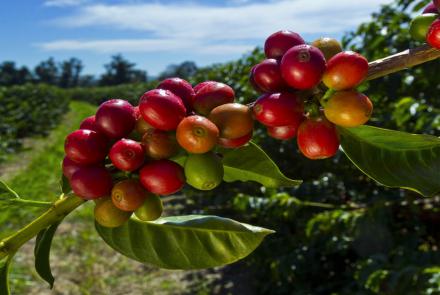COFFEE SPECIES IN THE EAST AFRICAN REGION.
Coffee has been a beloved beverage for centuries, with its origins tracing back to the fifteenth century. Across the globe, there are over 60 species of coffee, but only four are commercially grown and sold. These species—Coffee Arabica, Coffee Canephora (commonly known as Robusta), Coffee Liberica, and Coffee Excelsa—all originated in Africa. Among them, Arabica is the most prominent, accounting for 75-80% of the world’s coffee production.
In East Africa, the two dominant species of coffee are Arabica and Robusta, each with distinct characteristics and cultivation requirements.
Coffee Arabica: The King of Coffee
Arabica coffee is by far the most prized and widely cultivated species globally. It is known for its smooth, flavorful taste, rich aroma, and higher acidity compared to Robusta. Arabica coffee beans tend to have a lower caffeine content (about 1.5%) and are considered superior in terms of flavor complexity and balance. The beans are often described as having a milder, smoother taste with floral and fruity undertones.
In East Africa, Arabica is predominantly grown in the higher altitudes, where the cooler climates and fertile volcanic soils create ideal conditions. Ethiopia, Kenya, Tanzania, and Rwanda are major producers of Arabica coffee. The high altitudes (over 1,500 meters above sea level) allow the beans to mature slowly, resulting in a more developed flavor profile. Arabica beans are often handpicked to ensure only the ripest cherries are harvested, contributing to their premium quality.
Coffee Robusta: The Resilient Alternative
Robusta, scientifically known as Coffea canephora, is the second most widely grown coffee species. Robusta is a hardier plant with a shallow root system and a faster growth cycle, taking about 10-11 months for cherries to ripen. Compared to Arabica, Robusta is more resilient to pests and diseases, requiring fewer chemicals and pesticides for cultivation.
Robusta beans are typically known for their strong, full-bodied flavor, which often comes with a higher bitterness and earthy tones. These beans contain about 2.7% caffeine, much more than Arabica’s 1.5%, giving Robusta coffee a stronger stimulant effect. Robusta’s higher caffeine content also makes it less susceptible to pests and diseases, which is a significant advantage for farmers.
While Robusta beans are generally seen as inferior to Arabica in terms of flavor, they are often used in instant coffee, espresso blends, and lower-grade coffee blends. The bitterness of Robusta is mainly due to its pyridine content, which gives it a sharp, pungent flavor. Despite this, high-quality Robusta beans are valued for their stimulant properties, and they offer significant health benefits, including acting as a diuretic, antioxidant, and a remedy for spasmodic asthma.
Robusta’s Role in Uganda’s Coffee Production
In Uganda, both Robusta and Arabica coffee are grown, but the country’s coffee production is dominated by Robusta, with a ratio of approximately 4:1 (Robusta to Arabica). Robusta coffee was first introduced to Uganda from the Ethiopian highlands in the early 20th century, while Arabica was introduced later, around 1900, from Malawi and the Ethiopian highlands.
Robusta coffee is primarily grown in Uganda’s lowland regions, at altitudes up to 1,200 meters above sea level, while Arabica thrives in the higher elevations, particularly in the Mountains of the Moon region (Mount Rwenzori) and around Mount Elgon. The robust and adaptable nature of Robusta makes it a highly productive crop in Uganda, helping the country remain one of the world’s leading Robusta producers.
The Future of Coffee in East Africa
East African coffee, particularly Arabica and Robusta, is known for its exceptional flavor diversity. The unique growing conditions, including volcanic soils, high altitudes, and temperate climates, contribute to the region's reputation for producing some of the best coffee beans globally. Uganda, Ethiopia, Rwanda, Kenya, and Tanzania are at the forefront of this coffee revolution, with each country offering unique flavor profiles influenced by geography, climate, and processing methods.
At Waltham Coffee, we are committed to sourcing the finest Arabica and Robusta beans from East Africa to bring you a cup that’s not just flavorful but tells the story of its rich, diverse origin. Whether you prefer the smooth, fruity notes of Arabica or the strong, earthy flavors of Robusta, East African coffee offers a wide range of profiles that cater to every taste. By focusing on quality, sustainability, and direct trade with farmers, we aim to continue supporting the region's coffee industry while delivering exceptional coffee to our customers.


